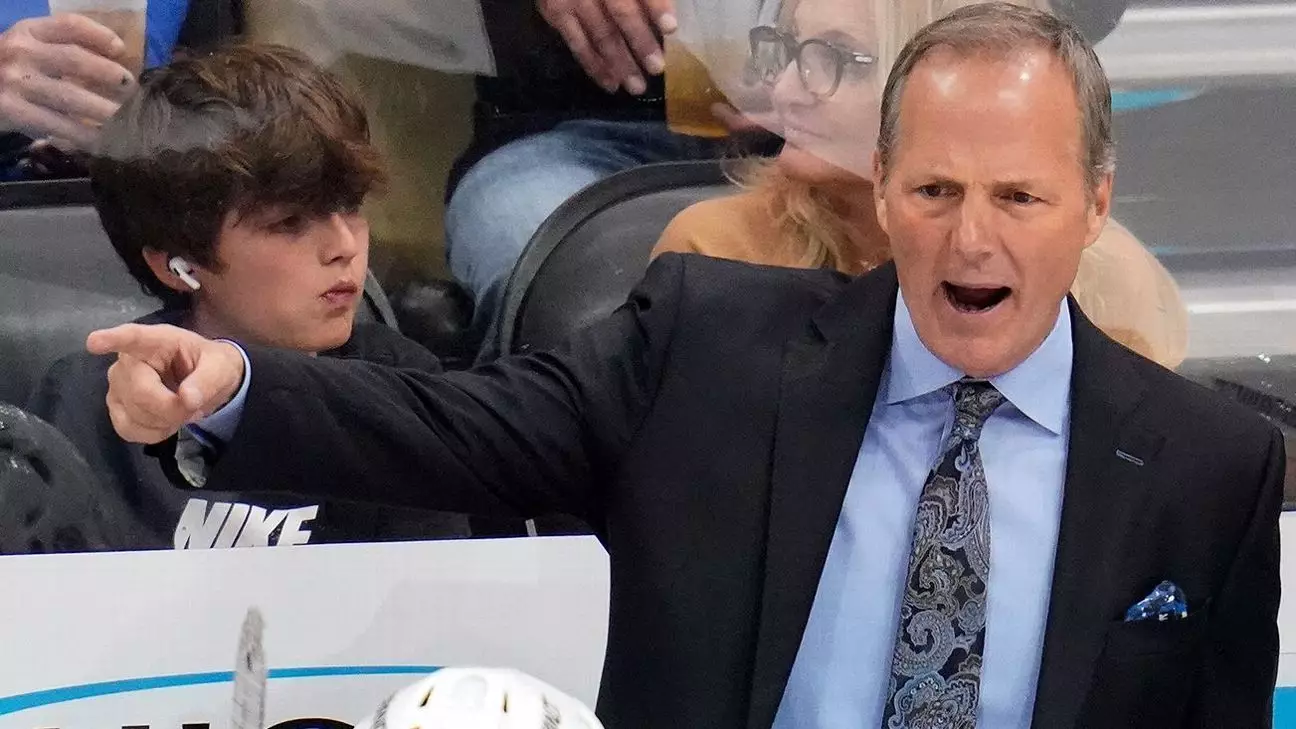In an era where professional sports often resemble a revolving door of coaches and players, the Tampa Bay Lightning’s decision to retain their head coach Jon Cooper for the 2025-26 season exemplifies a significant understanding of commitment and continuity. Despite the recent playoff disappointments and critics questioning the team’s direction, general manager Julien BriseBois confirmed that not only will Cooper be leading the home team again, but there are aspirations for a more extended partnership. This steadfast approach seems to stem not just from past successes but from the belief that stability can cultivate success in the ever-competitive NHL landscape.
Cooper, now 57, has been at the helm since March 2013, making him the longest-serving coach in the league. His tenure is marked by notable accomplishments, including back-to-back Stanley Cup victories in 2020 and 2021 and four Eastern Conference championships in subsequent years. These accolades underscore his capabilities, but they also amplify the scrutiny faced by both Cooper and the Lightning as they grapple with recent playoff failures.
The Double-Edged Sword of Past Glory
While Cooper’s track record speaks volumes, the irony is that past accolades can sometimes weigh heavily on present performance. The Lightning’s string of first-round exits, particularly to their rivals, the Florida Panthers, has raised eyebrows. These outcomes highlight the challenges faced by teams with lofty expectations. Cooper’s reflection on the current state of the franchise, noting, “It was our turn for a while. Now it’s theirs,” captures the cyclical nature of sports success. Here lies a lesson for both fans and management: greatness is often transient, and the thirst for dominance must be continuously nurtured.
Simultaneously, Cooper’s success narrative has shaped perceptions around the team—one that expects nothing less than triumph. The franchise has become a benchmark against which others measure their progress. Therefore, the decision to continue with Cooper should not merely be viewed through the lens of past victories but as an investment in the belief that resilience and adaptation are key components of any coach’s repertoire.
Building for the Future
BriseBois’s appreciation of his partnership with Cooper is critical during this uncertain phase. The emphasis on continuing this relationship reflects a broader strategy: fostering a collaborative environment where both coach and general manager can align their visions for long-term success. BriseBois’s comments hint at a harmonious dynamic, promising that this partnership will endure long beyond the current contract.
Moreover, as the Lightning navigate through challenges, Cooper’s candidness regarding the rumors of a potential exit—either to pursue new opportunities elsewhere or due to dissatisfaction with the franchise—reveals a significant characteristic of his leadership. By labeling only certain sources as credible regarding his future, he reaffirms his loyalty to the Lightning and establishes an expectation for stability and trust that fans and players alike can rally around.
Ties Beyond the Ice
Adding an intriguing layer to the narrative is the connection Cooper has with Utah’s hockey community, particularly with the Utah Hockey Club owner, Ryan Smith. This relationship, compared to the persona of Ted Lasso, emphasizes Cooper’s commitment to mentorship and collaboration beyond just on-ice strategies. The mention of communication between Cooper and Smith highlights an aspect often overlooked in sports: the importance of nurturing relationships that extend beyond corporate confines.
This dialogue also emphasizes the increasing interconnectedness of sports communities, where collaboration can transcend traditional boundaries. The fact that Cooper values communication with peer coaches creates pathways for the exchange of ideas and fosters a culture of continuous improvement. It suggests that even in the face of adversity, adaptability and learning from various experiences are crucial to remaining at the elite level.
The Future Awaits
With Cooper confirmed as the head coach for another season, the stakes are high. The Lightning must reconceive their strategies to reclaim their status as a powerhouse in the Eastern Conference. Amidst prevailing challenges and the pressures that accompany a legacy of success, the franchise possesses a unique opportunity: to turn the whispers of discontent and disappointment into a rallying cry for transformation and resurgence. The upcoming season will undoubtedly become a litmus test—not just for Cooper but for the entire Lightning organization as they grapple with the weight of expectations, attempts at renewal, and the aspiration of re-establishing their dominance on the ice.

